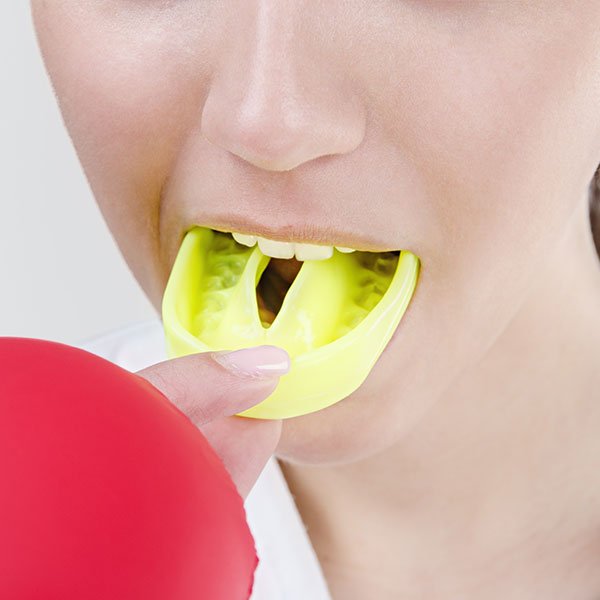
Prevention is better than cure….Because accidents can happen during any physical activity, the advantage of using a mouth guard during sports is that it can help limit the risk of impacted-related injuries to your lips, tongue and soft tissues of your mouth. Mouth guards are your safety shield to help you avoid chipped or broken teeth, nerve damage to a tooth or even tooth loss.
What is it?
A mouthguard is a protective device for the mouth that covers the teeth and gums to prevent and reduce injury to the teeth, arches, lips and gums.
What is it used for?
A mouthguard is most often used to prevent injury in contact sports. In many sports, the rules of the sport make their use compulsory.
Mouthguards should be used by anyone—–children and adults—-who play contact sports such as rugby, football, boxing, soccer, ice hockey, basketball, lacrosse and field hockey. However, even those participating in non-contact sports(for example, gymnastics) and any recreational activity(for example, skateboarding, mountain biking) that might pose a risk of injury to the mouth would benefit from wearing a protective mouth guard.
Preparation
Your dentist can determine the mouth guard what will provide the best protection for your unique mouth work. So make sure to contact your dentist at Positive Dental health for a custom made Mouth guard.
How it’s done?
Custom Fitted mouth protectors are individually designed and made in a professional laboratory based on our dentist’s instructions. First the dentist will make an impression of your teeth and a mouth guard is then molded over the model using a special material.
Due to the use of the special material and because of the extra time and work involved, this custom made mouth guard is more expensive that the other readymade types but it provides the most comfort and protection.
Care and Follow up
To care for your mouthguard
- Clean the mouthguard in cool soapy water and rinse it thoroughly
- Place the mouth guard in a firm, perforated container to store or transport it. This permits air circulation and helps prevent damage.
- Protect the mouth guard from high temperatures—-such as hot water, hot surfaces, or direct sunlight—-to minimize distorting its shape
- Occasionally check the mouth guard for general wear. If you find holes or tears in it or if it becomes loose or causes discomfort, replace it.
Bring the mouth guard to each regularly scheduled dental visit to have your dentist examine it.
